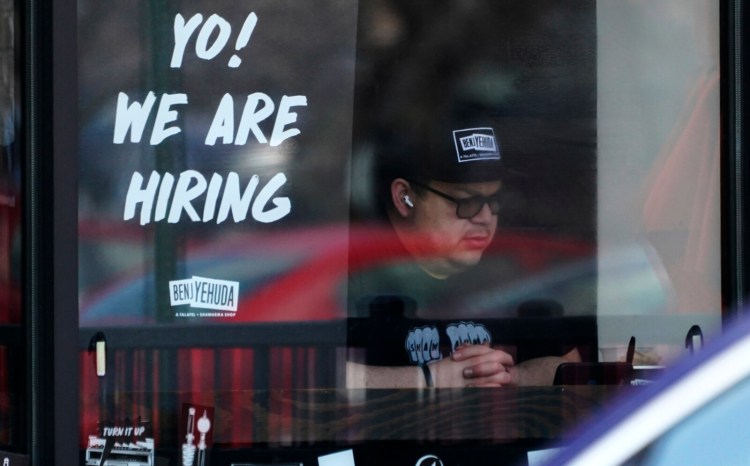U.S. employers posted a record 11.5 million job openings in March, and some 4.5 million Americans quit or changed positions, matching previous highs, reflecting continued strength in the rapidly growing labor market, where workers continue to have the upper hand.
Meanwhile, the number of new hires – 6.7 million – remained steady, according to a report released Tuesday by the Bureau of Labor Statistics.
“Demand for workers remains white-hot,” said Julia Pollak, chief economist at ZipRecruiter. “This is very broad, enormous growth. Even though we’ve almost recovered all of the jobs lost in the pandemic, the labor market just keeps getting tighter and tighter.”
The strong job openings and worker quits data could play into discussions about curbing inflation at the Federal Reserve, which is expected to announce another interest rate hike, by a half-percentage point on Wednesday. Fed Chair Jerome H. Powell has cited the “extremely, historically” tight job market as a major reason he says the economy can withstand higher interest rates without tumbling into recession.
U.S. employers have added more than 400,000 jobs a month for nearly a year, while the unemployment rate of 3.6 percent remains near record lows. Overall, the number of job openings grew 36 percent in March from a year earlier. Demand for workers rose markedly in retail (where job openings increased by 155,000 from February), manufacturing (up 75,000) and finance and insurance (up 51,000).
That insatiable need for new workers has forced employers across the economy to offer higher pay and better benefits. Wages have risen 4.7 percent in the past year, although they have not kept up with inflation, which has grown 8.5 percent in the same period. Economists say they expect workers’ pay to continue ticking up in coming months as companies compete for a limited pool of workers.
“These record quits across the economy show that employers are under huge pressure,” Pollak said. “They’re going to realize very quickly that offering massive compensation packages to new hires isn’t going to cut it anymore. They’re going to have to raise wages wholesale for existing employees, too.”
Workers who switched jobs saw a 5.3 percent increase in median pay from a year ago, compared to 4 percent growth for those who stayed put, according to the Federal Reserve Bank of Atlanta’s Wage Growth Tracker.
“The balance of power in wage negotiations has tilted toward workers,” Mickey Levy, chief Americas economist for Berenberg Capital Markets, wrote in a client note Tuesday.
Grace Oppy, 26, quit her job at a New York art gallery in March. Less than a month later, she’d found a better-paying position as an assistant at a large financial firm.
“There were a million openings, which was so different from earlier in the pandemic when it was impossible to get a job,” said Oppy, who spent much of the past two years unemployed after losing her marketing job in Paris in early 2020. “Now you can get a job. Can you afford to live? I’m not sure, but at least you can get hired.”
Beyond higher pay, many workers say the strong labor market has emboldened them to take risks they might not have otherwise been willing to consider. Many are prioritizing more flexible arrangements and work-life balance.
In Long Beach, Calif., Paula Hardy recently left her job as a chiropractor at a women’s clinic to start her own mobile practice. After working six days a week for much of the pandemic, she says she felt burned out and unappreciated.
“I went from making six figures a year to way less than that,” said Hardy, 38, who is also taking classes to become an acupuncturist. “But I’d rather be doing my own thing and eating ramen noodles, even if it is harder financially.”
It was the second time Hardy has switched jobs during the pandemic. The first time, in December 2020, she left a position as a chiropractor for longshoremen at the Port of Los Angeles after her boss insisted she keep coming to work even while she was sick with the flu.
“I was already disillusioned,” she said. “Then I got sick, and it was clear they didn’t care. The pandemic made me realize I don’t have to put up with that.”
Comments are not available on this story.
Send questions/comments to the editors.


